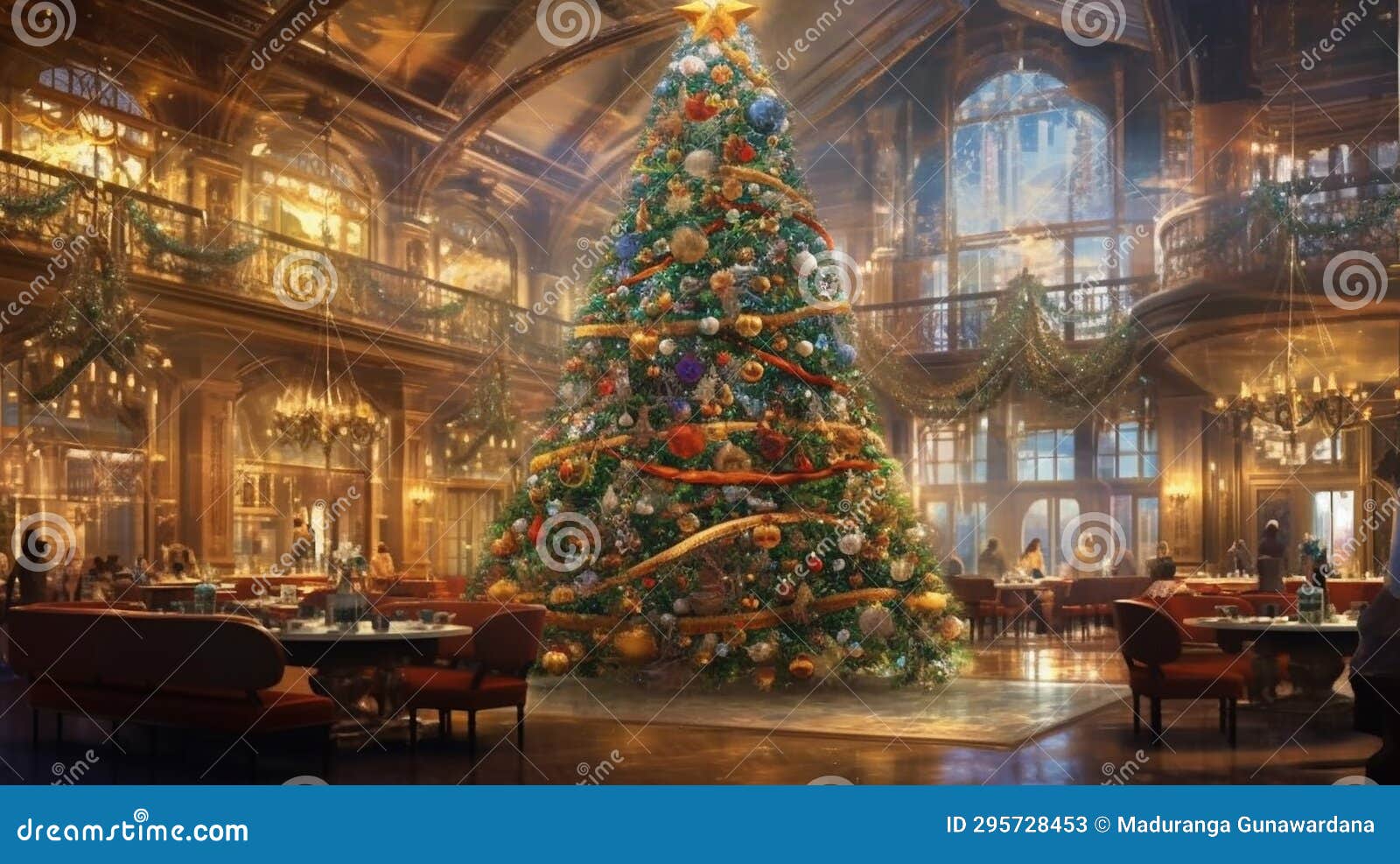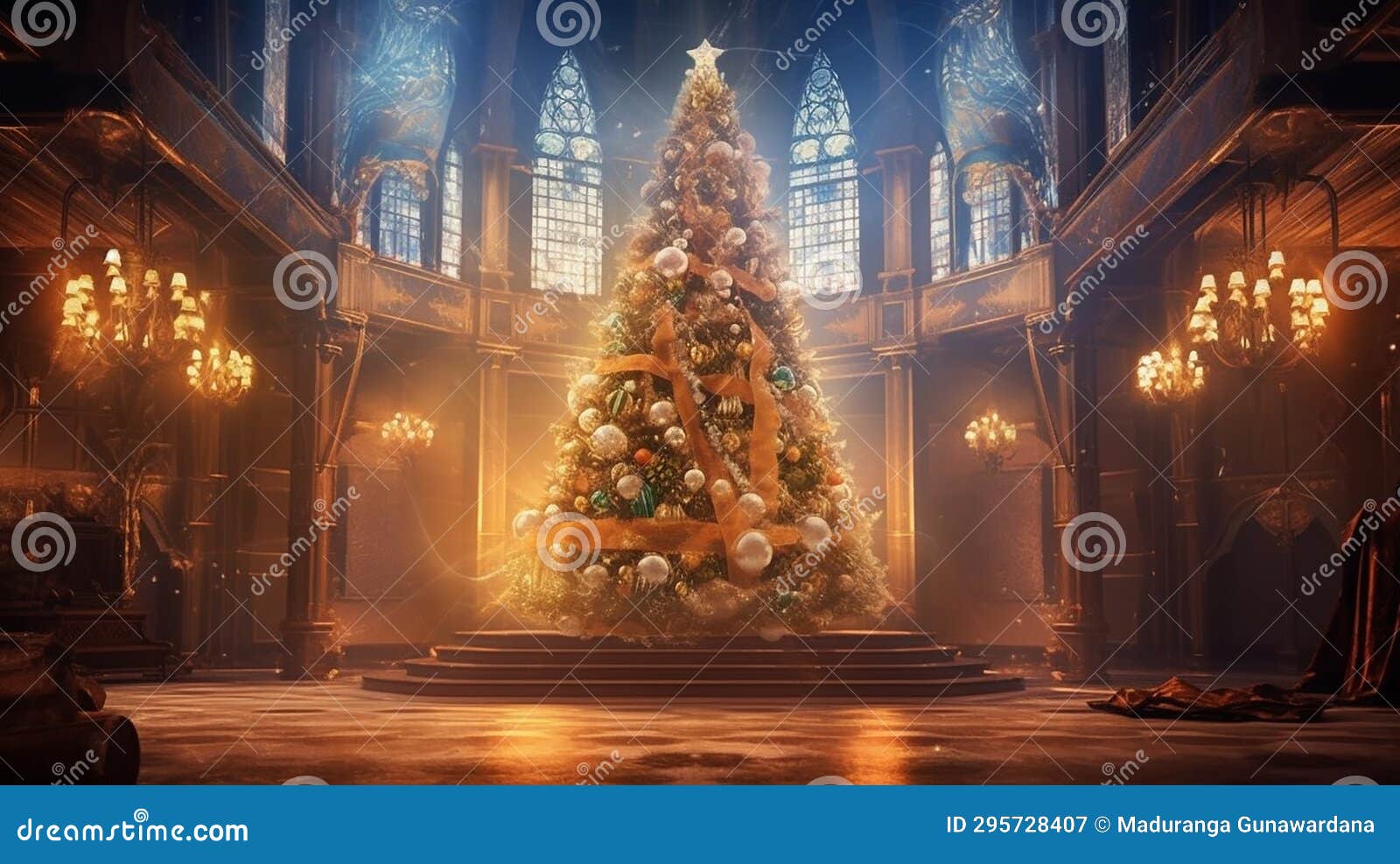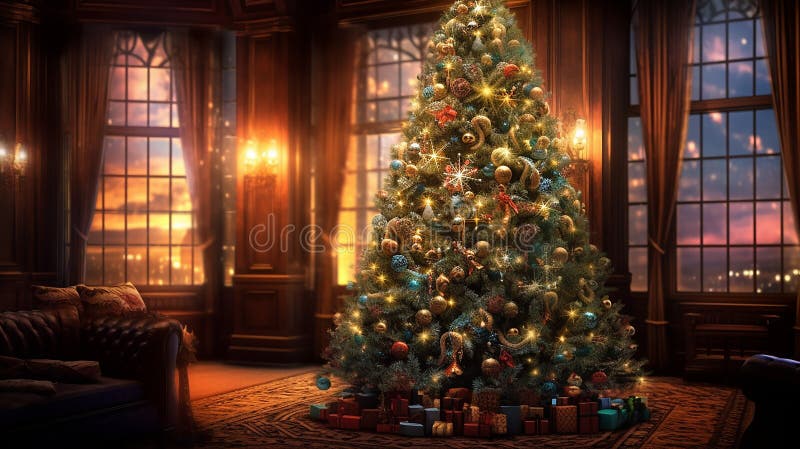The Enchanting Aura of Christmas: A Timeless Celebration
Related Articles: The Enchanting Aura of Christmas: A Timeless Celebration
Introduction
With great pleasure, we will explore the intriguing topic related to The Enchanting Aura of Christmas: A Timeless Celebration. Let’s weave interesting information and offer fresh perspectives to the readers.
Table of Content
The Enchanting Aura of Christmas: A Timeless Celebration

The holiday season, particularly Christmas, evokes a potent mix of emotions and traditions. While the specific customs and celebrations may vary across cultures and families, the underlying spirit of Christmas remains consistent: a time for joy, generosity, and reflection. This article delves into the essence of Christmas, exploring its historical roots, cultural significance, and enduring appeal.
Historical Roots and Evolution:
Christmas, celebrated on December 25th, commemorates the birth of Jesus Christ, a pivotal figure in Christianity. While the exact date of Christ’s birth is unknown, the early Church established December 25th as the official date in the 4th century. This date coincided with the Roman festival of Saturnalia, a week-long celebration dedicated to the Roman god Saturn. The Church likely chose this date to integrate existing pagan traditions into the Christian calendar, making the transition to Christianity less jarring.
Over centuries, Christmas evolved from a primarily religious observance to a secular holiday celebrated worldwide. This evolution is attributed to various factors, including the influence of Victorian traditions, the rise of commercialism, and the increasing secularization of society. While the religious aspects of Christmas remain important for many, the holiday has become a time for family gatherings, gift-giving, and festive decorations.
Cultural Significance and Traditions:
Christmas is celebrated with unique customs and traditions across the globe. In Western cultures, common traditions include decorating Christmas trees, exchanging gifts, attending church services, and sharing festive meals with loved ones. The iconic Christmas tree, adorned with ornaments, lights, and tinsel, symbolizes the tree of life and the birth of Jesus. Gift-giving, often associated with Santa Claus, represents the spirit of generosity and goodwill.
Beyond the West, Christmas is celebrated with diverse cultural expressions. In Germany, Christmas markets filled with handcrafted goods and festive treats are a beloved tradition. In Mexico, families celebrate "Posadas," a nine-day pilgrimage that culminates on Christmas Eve. These diverse traditions reflect the global reach and enduring appeal of Christmas.
The Enduring Appeal of Christmas:
The enduring appeal of Christmas lies in its ability to evoke feelings of warmth, joy, and togetherness. The holiday provides an opportunity for families and friends to reconnect, share stories, and create lasting memories. The spirit of giving and generosity fosters a sense of community and strengthens bonds.
Furthermore, Christmas offers a time for reflection and gratitude. As the year draws to a close, people often take stock of their lives and appreciate the blessings they have received. The holiday season encourages acts of kindness and compassion, reminding us of the importance of human connection and shared experiences.
The Importance of Christmas in Modern Society:
In a world increasingly dominated by individualism and materialism, Christmas serves as a reminder of the importance of human connection and shared values. The holiday encourages us to prioritize family and community, fostering a sense of belonging and shared purpose.
Christmas also provides an opportunity to engage in acts of service and generosity. Whether it’s volunteering at a local shelter or donating to a charitable cause, the holiday season inspires acts of kindness and compassion, reminding us of the interconnectedness of humanity.
FAQs About Christmas:
1. What is the origin of the Christmas tree tradition?
The Christmas tree tradition is believed to have originated in Germany in the 16th century. Early Christians used evergreen trees to symbolize eternal life and the presence of God in the world. The tradition spread to other parts of Europe and eventually to the Americas.
2. Why is Santa Claus associated with Christmas?
Santa Claus is a modern-day interpretation of Saint Nicholas, a 4th-century bishop known for his generosity and kindness. The legend of Santa Claus evolved over centuries, becoming synonymous with Christmas gift-giving.
3. What is the significance of Christmas carols?
Christmas carols are festive songs that celebrate the birth of Jesus Christ. These songs often tell stories about the nativity, express joy and praise, and promote the spirit of goodwill.
4. Is Christmas a religious holiday?
While Christmas originated as a religious holiday celebrating the birth of Jesus Christ, it has evolved into a secular holiday celebrated worldwide. While the religious aspects of Christmas remain important for many, the holiday has become a time for family gatherings, gift-giving, and festive decorations.
5. How does Christmas impact the economy?
Christmas is a significant economic driver worldwide. The holiday season sees a surge in retail spending, as people purchase gifts, decorations, and food for festive celebrations. The impact of Christmas extends to various industries, including retail, hospitality, and transportation.
Tips for Celebrating Christmas:
1. Focus on the true meaning of Christmas:
Remember that Christmas is a time for joy, generosity, and reflection. Prioritize spending quality time with loved ones and engaging in acts of kindness.
2. Set realistic expectations:
Don’t let the pressure of gift-giving and elaborate decorations overshadow the true spirit of Christmas. Focus on creating meaningful experiences with loved ones.
3. Practice gratitude:
Take time to appreciate the blessings in your life and express gratitude to those who have made a positive impact.
4. Engage in acts of service:
Volunteer at a local charity or donate to a cause you believe in. Giving back to the community is a powerful way to celebrate the spirit of Christmas.
5. Create traditions:
Start new traditions with your family and friends that reflect your values and interests. These traditions will create lasting memories and strengthen your bonds.
Conclusion:
Christmas is a holiday rich in history, cultural significance, and enduring appeal. While the specific customs and celebrations may vary, the underlying spirit of Christmas remains consistent: a time for joy, generosity, and reflection. As we celebrate this festive season, let us embrace the values of kindness, compassion, and community, reminding ourselves of the importance of human connection and shared experiences.








Closure
Thus, we hope this article has provided valuable insights into The Enchanting Aura of Christmas: A Timeless Celebration. We thank you for taking the time to read this article. See you in our next article!